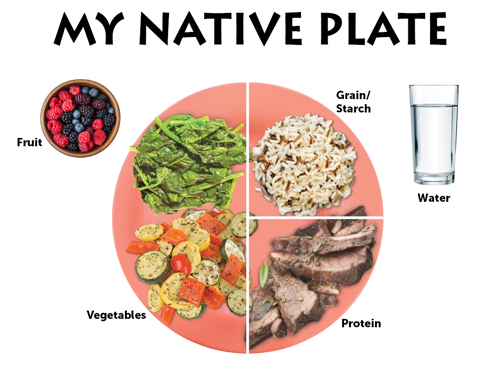The South Dakota Department of Health (SD DOH) is dedicated to promoting the health and well-being of American Indian communities across the state. Through collaboration with tribal health departments, Indian Health Services (IHS), and other partners, SD DOH aims to address health disparities and enhance access to quality healthcare services.
- Great Plains Tribal Leaders' Health Board (GPTLHB): The Great Plains Tribal Leaders' Health Board is committed to improving health outcomes in Indian Country. Through advocacy, public health education, direct care, and epidemiology support, we provide tribal nations and tribal citizens the tools they need to improve the lives of the people.
- Indian Health Services Health Topics: Discover reliable, culturally informed resources on a variety of health topics designed to support the well-being of American Indian communities. From managing chronic conditions to learning about preventive care, this page connects you with the information you need to make informed decisions about your health and the health of your loved ones.
- Achieving a Data Sharing Agreement: A Collaborative Journey with South Dakota Tribes and the Great Plains Tribal Epidemiology Center
The South Dakota Department of Health (SD-DOH) recognizes the importance of strong partnerships and open data sharing with South Dakota Tribes and the Great Plains Tribal Epidemiology Center (GPTEC). This collaboration is essential for promoting public health, preventing disease, and upholding tribal data sovereignty. The journey to establish a formal Data Sharing Agreement (DSA) reflects years of dedication, mutual respect, and shared purpose.
American Indian Health Resources

- My Native Plate
A nutrition education tool that incorporates traditional Native American foods and cultural practices to promote healthy eating habits. - Eagle Books Series
A collection of culturally relevant stories designed to teach children about healthy lifestyles and diabetes prevention. - Undo the Risk
A simple test can preserve everything you have. Chronic health conditions like diabetes, heart disease, and stroke can be avoided or even undone. - GPTLHB Health Promotion and Prevention Programs
Our programs help Great Plains area tribes combat high rates of obesity, commercial tobacco use, diabetes, heart disease, stroke, and other chronic illnesses. - Division of Diabetes Treatment and Prevention (DDTP): Offers a comprehensive online catalog of educational materials tailored for American Indians and Alaska Natives. Topics include nutrition, physical activity, and diabetes management.
- Native Diabetes Wellness Program: Provides resources and support for diabetes prevention and management, emphasizing traditional foods and community-based approaches.
View South Dakota Maternal & Child Health Programs
- GPTLHB Maternal & Child Health Programs
We are committed to serving the needs of mothers, children, and fathers in the Great Plains region and provide direct services, research, epidemiology, and technical assistance. - IHS Maternal and Child Health Program
Provides resources and support to improve the health of American Indian and Alaska Native mothers and children. - National Indian Health Board Maternal Mortality Prevention
Offers information and resources focused on preventing maternal mortality in Native communities.
SD Behavioral Health Program SD Suicide Prevention
- Let's Be Clear SD
Find prevention, treatment, and recovery resources for substance misuse and substance use disorder in South Dakota. - GPTLHB Behavioral and Community Health Programs
- Indian Health Service Behavioral Health
Offers programs and initiatives to address mental health and substance use disorders in Native communities. - Substance Abuse and Mental Health Services Administration (SAMHSA) Tribal Affairs
Provides resources and support for mental health and substance use issues in tribal communities.
- Great Plains Tribal Epidemiology Center Programs
Providing information, data, and technical assistance are at the core of our Epidemiology Center’s mission and services. Click below to find out more. - IHS Division of Epidemiology and Disease Prevention
Focuses on monitoring and preventing infectious diseases in American Indian and Alaska Native populations. - Centers for Disease Control and Prevention (CDC) Tribal Health
Offers resources and information on infectious disease prevention tailored for tribal communities.
American Indian Data Reports
American Indian Health Data Book
The American Indian Health Data Book contains data on selected health concerns in South Dakota, such as social vulnerability, early syphilis, congenital syphilis, cervical cancer, lung cancer, smoking, infant mortality, pregnancy-associated deaths, suicide, alcohol-related deaths, overdose deaths, and age of death.
American Indian Health Data Book, Executive Summary
The American Indian Health Data Book contains data on selected health concerns in South Dakota, such as social vulnerability, early syphilis, congenital syphilis, cervical cancer, lung cancer, smoking, infant mortality, pregnancy-associated deaths, suicide, alcohol-related deaths, overdose deaths, and age of death.
South Dakota American Indian Mortality Data, 2007-2023
This report examines the 10 leading causes of death among American Indians in South Dakota from 2007 to 2023. It analyzes data derived from death certificates submitted by local physicians and coroners. The report highlights the most prevalent causes of death, including cancer, heart disease, chronic liver disease, and diabetes, over the 17-year period. Additionally, it explores age-specific mortality patterns, revealing the leading causes of death in different age groups, such as motor vehicle accidents and suicide among children and young adults, chronic liver disease in the 30-59 age group, and the impact of COVID-19 on the 60-69 age group. The report also identifies heart disease as the primary cause of death in individuals aged 90 and above.
South Dakota American Indian Cancer Disparities Data Report
As part of efforts to reduce the burden of cancer in South Dakota through the implementation of the SD Cancer Plan 2015-2020, the SD Cancer Coalition identified numerous disparities in incidence, late-stage incidence, mortality, and preventative screening rates for breast, cervical, colorectal and lung cancer between the white and American Indian populations in South Dakota. To address these inequities, key partners including the SD Department of Health and Great Plains Tribal Chairmen’s Health Board conducted further analysis of the available data.
South Dakota American Indian Mortality Data, 2008-2024
This report examines the 10 leading causes of death among American Indians in South Dakota from 2008 to 2024. It analyzes data derived from death certificates submitted by local physicians and coroners. The report highlights the most prevalent causes of death, including cancer, heart disease, chronic liver disease, and diabetes, over the 17-year period. Additionally, it explores age-specific mortality patterns, revealing the leading causes of death in different age groups, such as motor vehicle accidents and suicide among children and young adults, chronic liver disease in the 30-59 age group, and the impact of COVID-19 on the 60-69 age group. The report also identifies heart disease as the primary cause of death in individuals aged 90 and above.
You Might Also Like
Grant Opportunities
Find grant opportunities through the Department of Health for a variety of public health concerns.
Infrastructure & Accreditation
The South Dakota Office of Infrastructure and Accreditation supports statewide public health through accreditation, workforce training, community engagement, cultural awareness, and strategic planning. Learn more about SHIP, TRAIN SD, and tribal partnerships.
Childhood Lead Poisoning Prevention Program (CLPPP)
The Childhood Lead Poisoning Prevention Program provides lead exposure prevention education and support to the families of children exposed to lead.
MCH
Find many programs and services to help pregnant and postpartum women, newborns, and children stay healthy.

